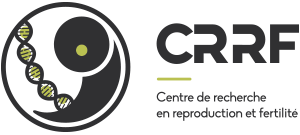
Anthony Estienne, PhD
Assistant professor, Faculty of Veterinary Medicine, Université de Montréal
Address
- (450) 773 8521 ext. 14743
- Anthony.estienne@umontreal.ca
- https://fmv.umontreal.ca/etudes/personnel-enseignant/fiche/in/in35943/sg/Anthony%20Estienne/
- Centre de Recherche en Reproduction et Fertilité (CRRF)
Département de biomédecine vétérinaire
Faculté de Médecine Vétérinaire
Université de Montréal
1500 avenue des vétérinaires
Saint-Hyacinthe, J2S 8H5
Research interest
My expertise revolves around reproductive function in general and ovarian function in particular. My first research work focused on the study of terminal ovarian folliculogenesis. Later, I chose to work more precisely on the regulation of the Anti-Müllerian Hormone (AMH) system by Bone Morphogenetic Proteins (BMPs) and its consequence on the ovarian phenotype in several study models. Subsequently, I became interested in the processes of follicular atresia and ovulation. Finally, my most recent research projects focused on the relationship between metabolism and reproduction, particularly in chickens and humans. In addition, I was interested in the effects of certain phytosanitary products (herbicides) on reproduction in the species previously mentioned.
My current long-term research program takes place in the context of the difficulties encountered by the dairy sector and in particular the problems of bovine fertility. Modern dairy cattle have been selected for high milk production, to the detriment of other characteristics such as fertility. Indeed, the success rates of the first artificial insemination (AI) leading to pregnancy have only decreased over the last decades, thus requiring multiple AIs and therefore lengthening the time between two gestations and therefore two periods of lactation. Efforts are now being made to address these problems, but reproductive biotechnologies and more precisely the production of female gametes in vitro would provide additional solutions to these problems. Even if assisted reproduction techniques in livestock are well mastered, the culture and reconstitution of reproductive organs in vitro could ultimately allow the reduction of herds and therefore the number of live animals, thus leading to a reduction in production costs and environmental impact, while maintaining high good quality embryo productivity.
Members of the laboratory

